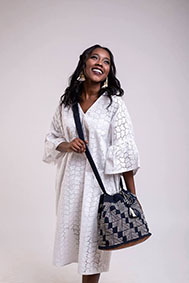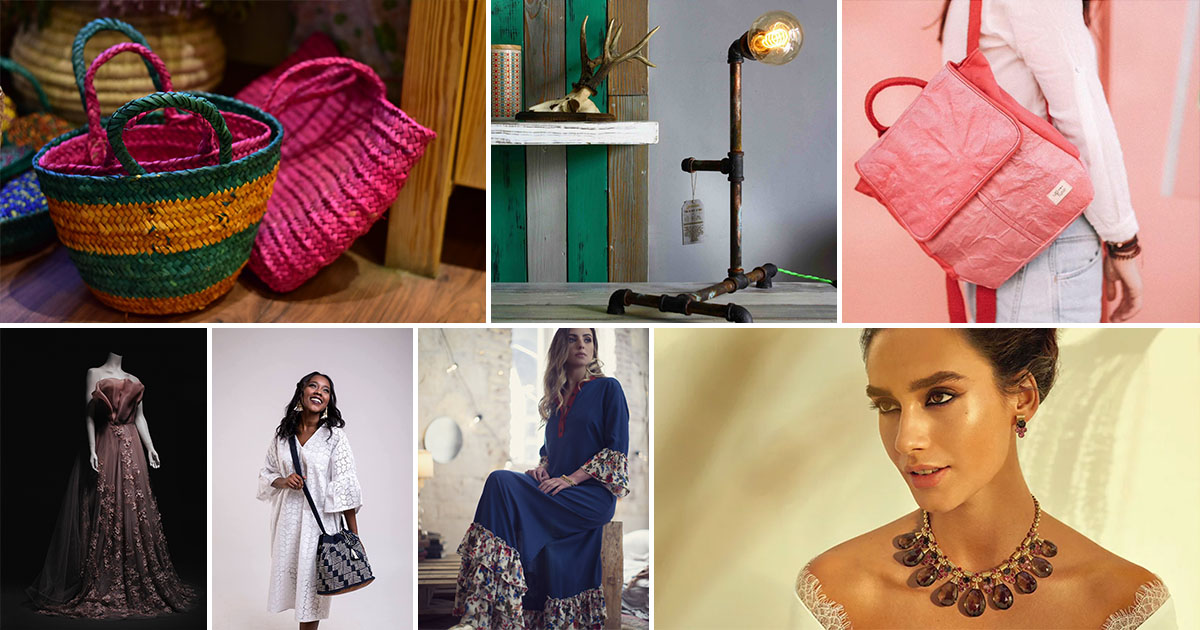We often view consumerism in a negative light. This doesn’t come off as a surprise, seeing how consumerism in its most basic definition has damaged societies somehow. People have been conditioned to want to own things even if they don’t exactly need them. Advertisements and billboards were no longer enough, not even product placement in films and series would suffice. Now we have advertisements on our smart phones! However, an ethical side to this can be found in conscious consumerism. A clear example of this is fair trade. This is a concept that aims to help producers get better trading conditions. With the rise of global consciousness, more and more people have been straying from retail shopping, and going back to buying products which aren’t mass produced. Those products are not only unique and meaningful, but also ones that benefit those who made it.
Now in Egypt we have a number of brands that help artisans find jobs. The brands train those artisans, provide them with the knowledge and the skill to work. The work they produce is then sold to the public, and the artisans are paid fairly.
Here are eight brands whose products aren’t made in a factory where workers aren’t appreciated, but made by artisans who are receiving fair wages and humane treatment.
“These are people who work hard, with dignity and deserve that we give them their rights to earn and preserve our tradition and theirs”
Fair Trade Egypt
Fair Trade Egypt is an organization whose activity is admirable both because of the work they do with artisans and because of the gorgeous products they make. Whether it be beautiful kitchenware or funky bags and scarves and a lot more, Fair Trade Egypt’s passion about their artisans’ work is admirable, “Fair Trade products are not a charity to people who made them”, Mona Elsayed, Board Director of Fair Trade Egypt, tells, “these are people who work hard, with dignity and deserve that we give them their rights to earn and preserve our tradition and theirs”. She has witnessed how the artisans they work with and their communities have changed, “it has provided them with income generated from what they do best. Our support then extends to a whole set of capacity building”, Mona tells, “we have seen through the years how they have become more economically and socially secured. Working with these artisans has helped them keep their traditions and culture through crafts”.
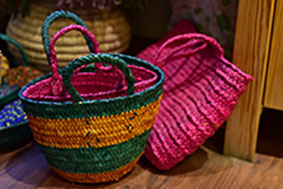

“You have to appreciate buying from artisans, you’re helping a community. It’s creating jobs”
Amina K
Beautiful, edgy with an Egyptian twist, Amina K’s designs are very easy to recognize. Her work with artisans is also a great addition. Knowing your gorgeous outfit came from the hands of someone whose labor was rewarded is definitely worth it, even if it comes off slightly more expensive than retail shopping, “you have to appreciate buying from artisans, you’re helping a community. It’s creating jobs”, Amina tells, “think of the story behind the brand. This comes at a higher price”. Not only are the artisans making a living, but they also work more or less on their own terms, “if it’s not beneficial for them they won’t do it. They give us a price and we have a range of what’s reasonable, but they get what they ask for”, she tells.


“It’s so important to help give unskilled people hope that with knowledge and education, they can take their lives into their own hands”
Deana Shaaban
Deana’s work combines bold cuts with gorgeous minimalistic designs. When you shop from her effortlessly chic work, you’re also performing a form of conscious consumerism. Some the artisans who work with Deana don’t even possess the skills of the craft before they work with her, “there’s an NGO that we work with, they get women who are unskilled and unemployed and they give them skills”, Deana says, “it’s so important to help give unskilled people hope that with knowledge and education, they can take their lives into their own hands”.
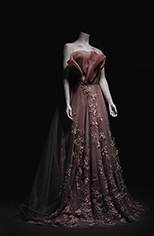
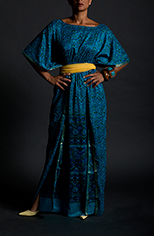
“The craftsmen feel very proud of their work when they see it in magazines or worn by celebrities”
Azza Fahmy
Azza Fahmy’s jewelry is known worldwide for its beauty and charm. Her designs are like no other in terms of originality, while still maintaining a very strong connection to Egyptian culture. The Azza Fahmy team takes pride in their work with artisans and the gorgeous craftsmanship demonstrated in their work, “we’re trying to preserve Egyptian crafts. And the craftsmen feel very proud of their work when they see it in magazines or worn by celebrities”, Rana Kandil, Senior PR Associate at Azza Fahmy Jewellery, says. One of the best parts is that Azza Fahmy’s team has employed the Ottoman heirarchy of Osta, Sanai’y and Saby, “it’s an ancient technique and an educational system. So a Sanai’y can become an Osta (Master) one day”, she explains, “we have some Masters who have been with us for over 20 years”.


“We wanted to do something to enhance the living quality of locals here in Egypt”
Upfuse
Funky, street chic, environmentally friendly and done with artisans! There’s nothing that we don’t absolutely love about Upfuse’s products. Upfuse was founded by Rania Rafie and Yara Yassin. Their colorful bags are made of upcycled plastic bags by Egyptian artisans, “when we thought of the project, we wanted to do something to enhance the living quality of locals here in Egypt”, Yara Yassin, Co-Founder of Upfuse, says, “and we know that there are many people around who are craftsmen. We’re not doing rocket science, we’re making bags. We wanted to empower them and for them to make bags with us”.


“I work with local and small-scale workshops to do casting sometimes”
EHEM
These trendy furniture designs are based on the concept of taking everyday objects and turning them into works of art. The industrial results are every bit as gorgeous as they are quirky. While Dina Naguib is the Designer Maker behind Ehem, making each piece a creation of her own, she employs the services of electricians and carpenters while making her pieces. Dina creates unique pieces with her own hands, utilizing the services of Egyptian craftsmen, “as a designer maker I am the only one at the ‘workshop’ apart from the occasional electrician and carpenter. I work with local and small-scale workshops to do casting sometimes”, she says.

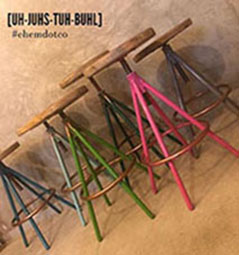
“Through the years I’ve worked with artisans from all over Egypt”
Thaat Store
Founded by Peri Abouzeid, they make what they call “responsible” products. The beautiful fashionable pieces are designed by Peri Abouzeid. Then, those designs are carried out by talented Egyptian artisans. Peri’s work with artisans extends beyond Cairo, “through the years I’ve worked with artisans from all over Egypt”, she tells. Thaat shcool, which started four years ago, has relocated from Imbaba to Dokki, while still catering to the same target group. Thaat studio offers craft classes and employment opportunities to artisans in need and will launch officially in Ramadan.

